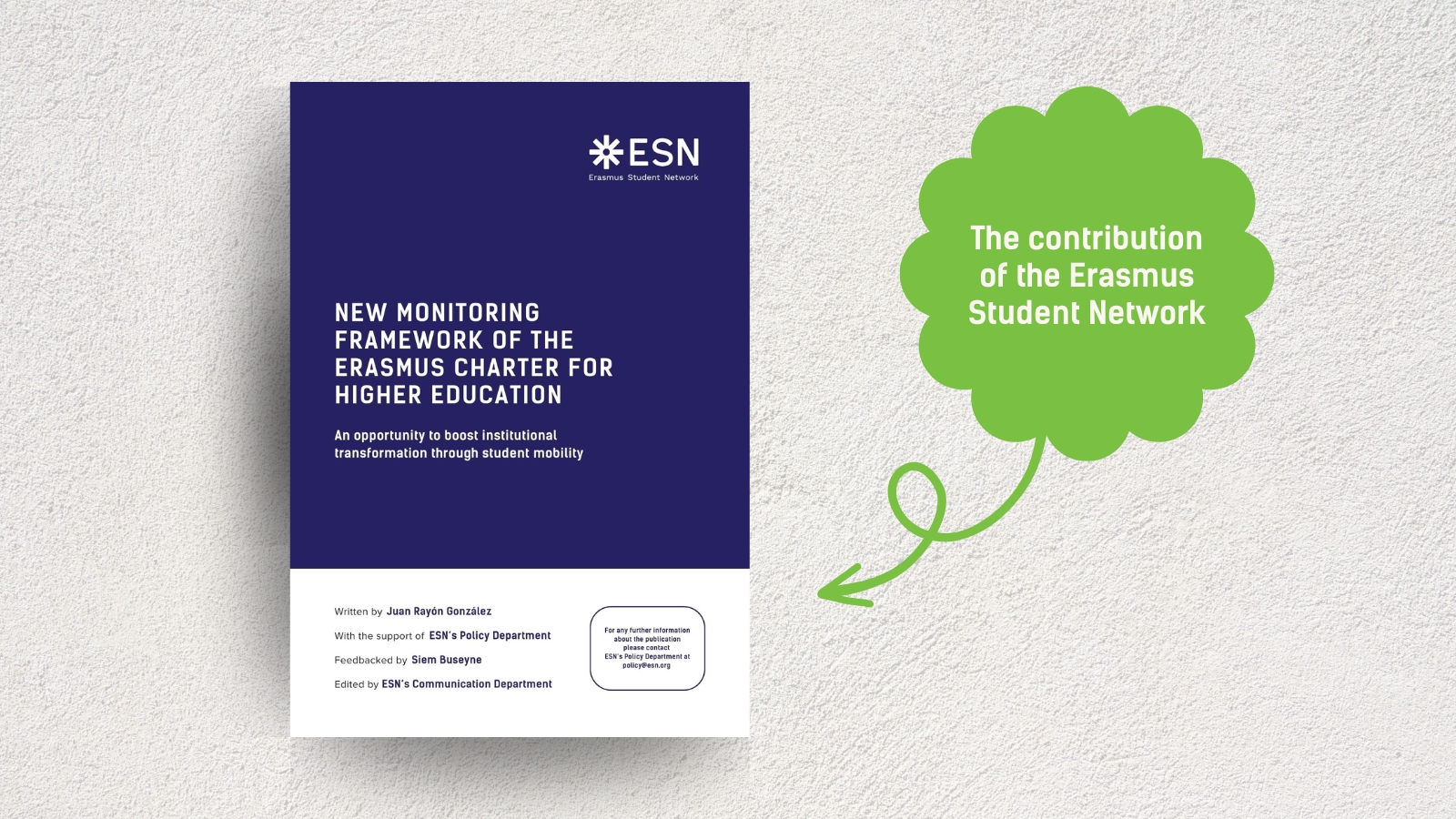
The European Commission has recently published the new Monitoring Guide of the Erasmus Charter for Higher Education 2021-2027, the quality framework for participation in Erasmus+ mobilities and cooperation projects for Higher Education Institutions (HEIs). The guide contains a full monitoring package, including the evaluation grids and guiding questions for monitoring visits. In this document, ESN shares some reflections on the importance of the new guide and its priority areas.
The Erasmus Student Network welcomes the publication of the new Monitoring Guide and celebrates its increased level of ambition. ESN considered that an ambitious implementation of ECHE principles, in line with the ECHE Annotated Guidelines and with the rights enshrined in the Erasmus Student Charter, is fundamental to ensuring quality mobility experiences for all students, and truly advances the implementation of the priorities of the programme. The new monitoring framework priorities key aspects that students report as important challenges in their mobilities, such as automatic recognition, timely payment of grants, student support and inclusion measures, ESN believes that it is of paramount importance that this implementation process is supported by comprehensive monitoring systems that help HEIs to build capacity and have a clear improvement through the programme. The objective should not be to punish anyone, but rather make sure that the document and its monitoring help HEIs to develop their internationalisation strategies and support measures, responding to the needs and challenges of students. In that regard, ESN has included several references to this monitoring process in the Technical recommendations of the Social Inclusion and Engagement in Mobility (SIEM) project and the policy recommendations of the ESNsurvey XIV edition, and it encourages National Agencies (NAs) and HEIs to consider these recommendations in the implementation and monitoring of the ECHE commitments.
The monitoring guide was created with the support of a working group coordinated by the European Commission, NAs, experts, and representatives from stakeholder organisations, including the Erasmus Student Network and the European Students’ Union. ESN would like to thank the European Commission and NAs for coordinating this co-creation process, and especially for the involvement of students and the quality of the discussions. ESN hopes that this successful process can be followed for collaborations with student organisations involved in student mobility at the national level, and stands ready to facilitate them.
ESN is committed to supporting the implementation and monitoring of the ECHE through its activities, research and policy work. In 2020, ESN published a document explaining how local student associations can play an important role in implementing ECHE commitments. Through the ESNsurvey, ESN will also analyse how students perceive the implementation of ECHE commitments throughout the current Erasmus+ programming period. The next ESNsurvey will be launched in late May 2023, and it will target specifically many of the pressure points of the new ECHE.


Follow ESN